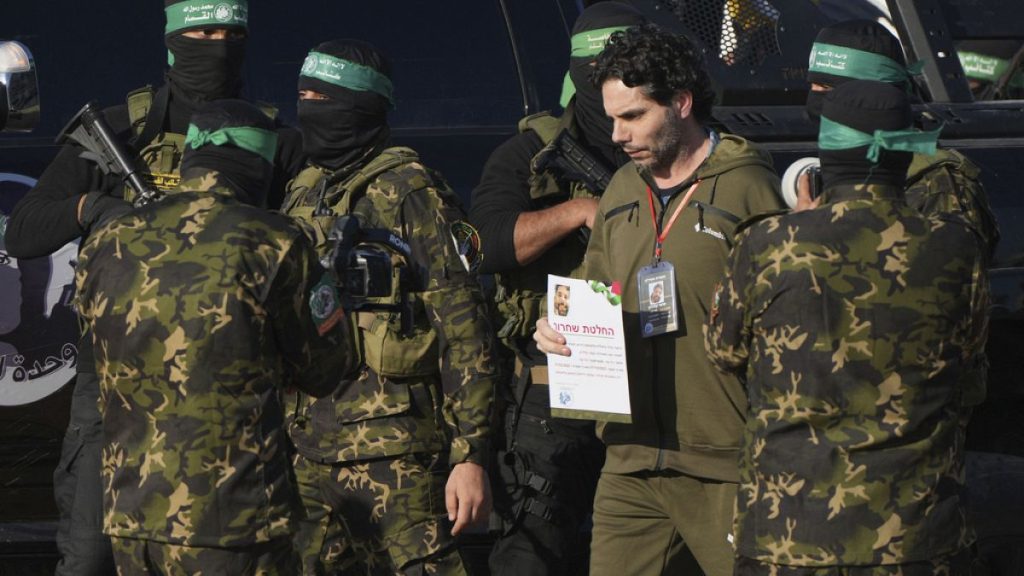The recent release of hostages, including French-Israeli Ofer Kalderon, American-Israeli Keith Siegel, and Argentinian-Israeli Yarden Bibas, marks a significant step in the ongoing ceasefire agreement between Israel and Hamas. While the families of the freed captives celebrate their return, the long road to recovery underscores the profound psychological and emotional toll of prolonged captivity. Having endured over 15 months of unimaginable hardship, these individuals now face the complex and often arduous process of reintegrating into a world that has moved on without them. Experiences shared by former hostages reveal that this transition is rarely seamless, fraught with challenges that extend far beyond the immediate physical and mental health concerns.
The ordeal of captivity inflicts deep wounds, leaving invisible scars that can persist long after the physical chains are broken. The deprivation of freedom, the constant threat of violence, and the psychological manipulation employed by captors create a traumatic environment that can profoundly alter an individual’s perception of the world and their place within it. Upon release, former hostages often grapple with a range of emotional and psychological issues, including post-traumatic stress disorder (PTSD), anxiety, depression, difficulty sleeping, and recurring nightmares. The sudden shift from a highly controlled, restrictive environment to the relative freedom of normal life can be overwhelming, leading to feelings of disorientation, confusion, and a sense of vulnerability.
Rebuilding relationships with loved ones can also present unexpected challenges. Families, while overjoyed at the return of their captive relatives, may struggle to understand the profound changes they have undergone. The shared experience of captivity creates an invisible barrier between the hostage and those who remained free, making it difficult to communicate the trauma endured and the resulting psychological impact. Furthermore, the prolonged absence can strain family dynamics, requiring patience, understanding, and open communication to rebuild the bonds that were tested during the period of separation. Professional counseling and support groups can play a crucial role in facilitating this process, offering a safe space for both former hostages and their families to process their experiences and navigate the challenges of reintegration.
Beyond the personal sphere, former hostages also face the challenge of reintegrating into society. The world they return to is often vastly different from the one they left behind. News cycles have moved on, friends and colleagues have adapted to their absence, and the familiar routines of daily life may feel alien and disorienting. The media attention surrounding their release can also be intrusive and overwhelming, adding to the pressure and difficulty of adjusting to a newfound freedom. Reclaiming a sense of normalcy and rebuilding a life interrupted by captivity requires resilience, support, and a gradual process of re-acclimation.
The case of Ofer Kalderon exemplifies the long and difficult road to recovery that lies ahead for these released hostages. His family acknowledges the challenges ahead, recognizing the need for both physical and psychological healing. The trauma of captivity, the separation from his children, and the uncertainty of his fate have undoubtedly left deep marks. The support of his family, access to appropriate medical care, and the understanding of a community that has shared in his ordeal will be crucial to his successful reintegration.
The ongoing ceasefire agreement between Israel and Hamas hinges on the delicate balance of hostage releases and prisoner exchanges. The successful completion of this phase is essential to building trust and paving the way for a more permanent resolution. The fragility of the truce underscores the urgency of finding a lasting solution that addresses the underlying causes of the conflict. The release of these hostages represents a glimmer of hope, a testament to the power of negotiation and compromise. However, the true measure of success lies in the ability to create a future free from violence and fear, where such ordeals become a distant memory and not a recurring nightmare.














